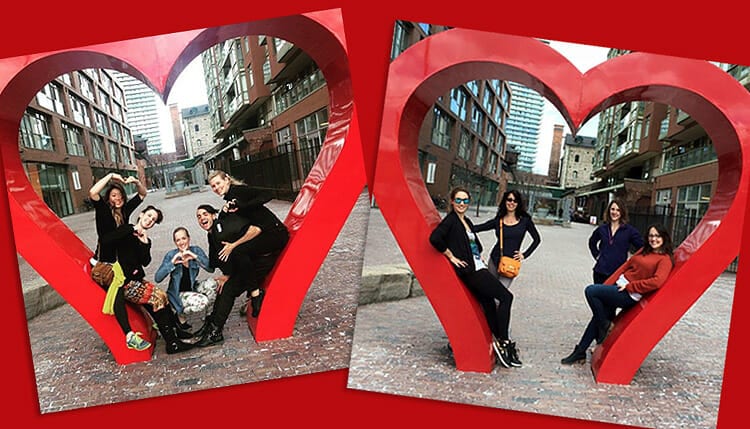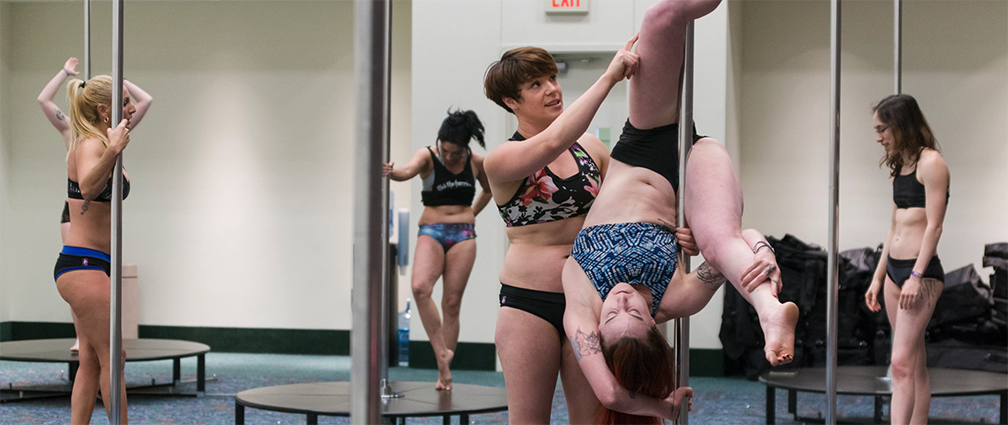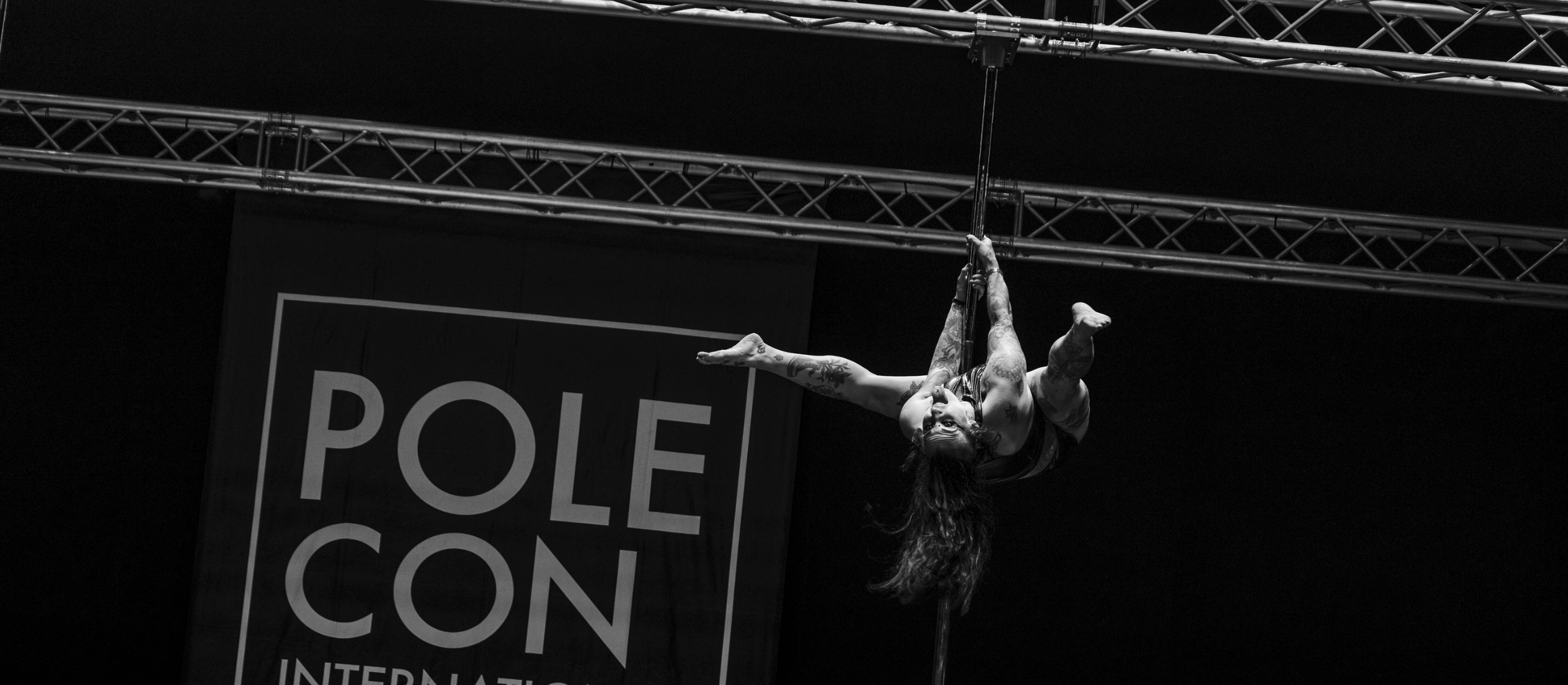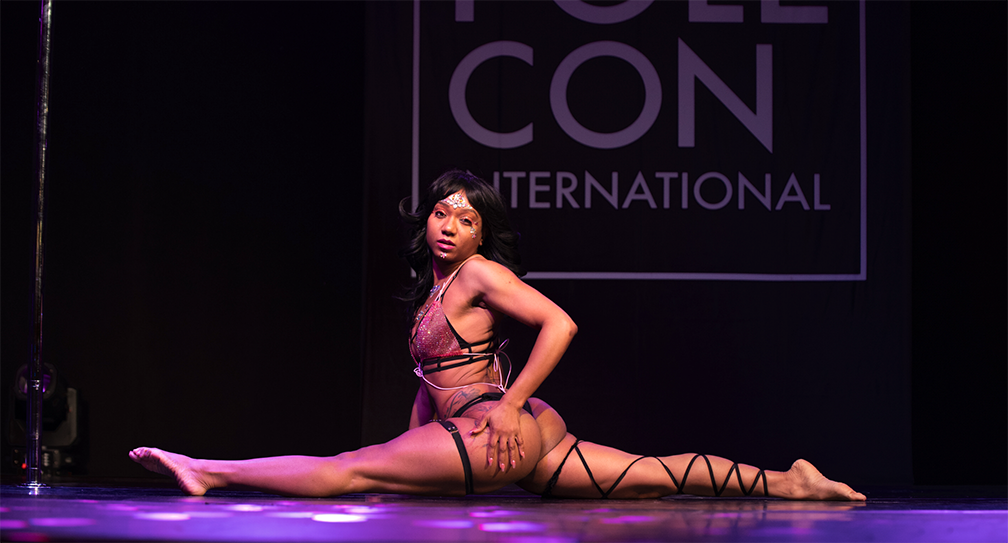I asked this a few weeks ago via social media and many people had some…

THE SOCIAL SIDE OF POLE: Come for the workout, stay for the community
I’m a self-proclaimed fitness junkie. I’ll try anything. The less-conventional, the better. Trampoline cardio. Kangoo. Rock climbing. Circus. That one time I took a class that I thought was about circus/gymnastics, but really we spent the hour body-slamming ourselves against the ground. I love it all, and am always interested in trying new things if I can find the time.
But here’s the thing: as A.D.D. and novelty-seeking as I can be, there’s one activity that pulled me in and kept me in, and that’s pole. I 100% chalk this up to the amazing community.
What makes the pole community so special? I think a big part of it is actually because of the stigma associated with pole dancing. It takes a special type of person to be open-minded enough to go for pole. And because of the often negative reaction from people outside the community, it means people within the community need to band together even harder to support each other. We’ve got each others’ backs much more seriously because of the discrimination that happens.
Another reason is the pretty intense strain that pole puts on the body. The bruises, the skin abrasions, the soreness… These things SUCK and you need to cheer each other on extra hard to get through! There’s an automatic respect for anyone who is badass enough to stick with and master an activity that is so painful to start.
And then, add to the mix what is in my opinion the best thing about pole: it fully celebrates individuality and personal expression. No two people pole the same way. Everybody brings a different life experience, a different type of body, a different vision of the art they want to make. And pole is a blank canvas that can be used to create an endless number of different things. People who stick with pole tend to be creative, curious, and expressive. Basically the best type of humans.
Unfortunately, as we spend more and more time in the pole world, a lot of the initial joy of the community can start to fade. Poling begins to feel like a competition, whether or not you actually compete on stage. As you get more advanced, there’s always more, harder tricks to learn, and slowly there’s less and less cheering. Most of the big events in the pole world are competitions, so that energy can start to dominate. But it doesn’t have to!
Last October I went to my first pole event that gathered people from across the country who are passionate about pole dancing, and was not a competition. It was a retreat called Pole Unbound, and it felt so good to just enjoy movement, make new friends and celebrate the thing we all love doing.
I was incredibly excited to have the same kind of amazing, feel-good experience attending PoleCon this year in New Orleans. Pole community at its best means empowerment, support, and pushing each other to grow beyond anything we ever thought we could achieve. It means celebrating everybody’s individuality, and celebrating as you watch people transform into better and better versions of themselves. It’s exciting and endlessly inspiring.
Whether you’re a newbie pole dancer who’s celebrating your first tricks and achievements, or an old-hand who’s been at it for years, we all need to get behind events like PoleCon and remember that the joy of all this is getting to go through it together. Competitions may drive us forward as athletes and as an industry, but community is what feeds the soul.
Latest posts by Liz Kinnmark (see all)
- We’re Here, We’re Queer, & We’re Never Gonna Leave! - May 24, 2019
- TOP 10 WORKSHOPS FOR THE BEGINNER POLE DANCER - May 13, 2017
- 5 THINGS YOGIS DO BETTER THAN POLE DANCERS - September 23, 2016


